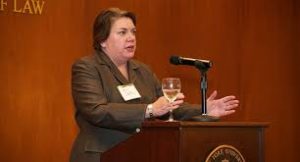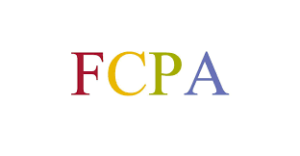AAG Caldwell Touts Success of FCPA Enforcement and Pilot Program
 In a speech last week, Criminal Division Assistant Attorney General Leslie Caldwell touted the success of the FCPA Pilot Program. Her speech is available here.
In a speech last week, Criminal Division Assistant Attorney General Leslie Caldwell touted the success of the FCPA Pilot Program. Her speech is available here.
AAG Caldwell outlined the success of the FCPA enforcement program, listing many of the most significant enforcement actions, including the recent Och-Ziff and Embraer resolutions. Since 2009, the Justice Department has resolved criminal cases with approximately 65 companies, resulting in criminal fines and forfeiture of over $4.5 billion. AAG Caldwell and many others who have worked at DOJ should be proud of the FCPA Unit’s accomplishments. There is no question that FCPA prosecutions have been increased significantly over the last ten years.
At the same time, AAG Caldwell reiterated the improved international cooperation and increased prosecution of individuals and companies. DOJ is increasing cooperation with Chinese corruption investigators, which is a significant development, and sharing information with a large number of foreign law enforcement agencies.
As to resources, AAG Caldwell noted that the FCPA Unit was in the process of increasing the number of assigned attorneys by 10 individuals. She also noted that the FBI has three separate squads dedicated to foreign corruption prosecutions.
AAG Caldwell cited the success of the FCPA Pilot Project. According to her explanation, she mentioned that DOJ has been more transparent about its FCPA resolutions. She is right. DOJ is providing more information about how and why they reached a particular settlement, although DOJ retains a significant amount of discretion when reaching resolutions.
Most importantly, AAG Caldwell highlighted the April 2016 FCPA Pilot Program, which offered companies a possible 50 percent fine reduction from the low-end of the Sentencing Guidelines (and possibly a declination) if a company self discloses the violation, cooperates with the government investigation and remediates its compliance program. AAG Caldwell stated that the early anecdotal evidence was that more companies were self-disclosing pursuant to the Pilot Program. While there is no hard evidence to support the claim (yet), AAG Caldwell’s statement is an important data point and observation. In particular, AAG Caldwell cited specific instances where DOJ declined to prosecute and released a copy of the letter to the company.
AAG Caldwell’s last set of comments focused on corporate compliance programs. She mentioned that companies have improved their compliance programs, and urged companies to implement compliance programs that meet the compliance program requirements set out in DOJ settlements. From her remarks, it is clear that DOJ continues to find fault in companies that fail to operationalize their paper programs.
AAG Caldwell’s pronouncements are fairly well supported. DOJ has increased transparency in its enforcement program. I continue to disagree that the incentives to self disclose is insufficient to increase significantly the number of self-disclosures. DOJ should increase the carrot for companies to a declination.
Companies that disgorge any illegal profits from bribery, cooperate with the investigation, and meet the exacting requirements for an effective ethics and compliance program should be given a pass. Companies that meet these requirements “suffer” reputational damage, pay back illegal profits, and expend significant resources to investigate the matter and implement compliance program improvements.
 In the end, we may continue to see marginal increases in FCPA enforcement pursuant to the Pilot Program. However, it is unlikely that the number of self disclosures will increase significantly, unless and until there are greater incentives for companies to self disclose.
In the end, we may continue to see marginal increases in FCPA enforcement pursuant to the Pilot Program. However, it is unlikely that the number of self disclosures will increase significantly, unless and until there are greater incentives for companies to self disclose.
Companies that discover violations have to weigh the positive benefits of self-disclosure. In the absence of a significant global scheme of bribery that cuts across a number of countries or regions, or the company identifies a risk of disclosure by some other means (e.g. whistleblower), companies rarely will decide to self disclose. The risk of detection may be relatively low and the benefits of self disclosure are not so significant as to tip the scale in the direction of self disclosure. In this situation, remediation and documentation of the company’s investigation and compliance program enhancements may be sufficient to protect the company in the event the government learns about the prior violation.
















1 Response
[…] Read Full Article: AAG Caldwell Touts Success of FCPA Enforcement and Pilot Program – Corruption, Crime & Com… […]